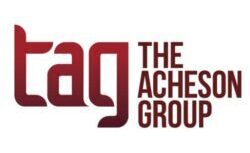As of last week, CDC declared that the Salinas, Calif., romaine lettuce outbreak appeared to be over, stating that consumers need no longer avoid romaine or any other produce from Salinas. It is the phrase “or any other produce” that so often expands the risk of recalls – not only will consumers often avoid all brands of a recalled product, they often avoid all products from the region … or from the implicated brand or even the whole commodity. The thinking can be “If that romaine is contaminated, it all could be” or “If XYZ’s lettuce is contaminated, their tomatoes may be too.” While consumer perspective may be difficult to change, you can improve your crisis and recall management to reduce your risk, which could include the loss of revenue, business opportunities and customer loyalty, impacting your brand and bottom line that can even result in loss of your business. How you manage a crisis will depend a great deal on how prepared you are to do so. Successful management of a crisis is all about being both fast and right. Do you have a crisis or recall management plan in place? Will the issues be elevated swiftly and appropriately? Are you prepared for rapid response and communication? Do you conduct real-life simulations to assess your preparedness? While being recall/crisis ready is critical for brand protection, it also is critical for consumer protection. As we discussed in a newsletter of May 2019 on FDA’s April issuance of draft guidance on initiating voluntary recalls, the agency said, “It is critical for firms in a product distribution chain to be ‘recall ready,’ to help minimize public exposure to (contaminated) products.” Additionally, the agency recommends having written recall initiation procedures, along with plans for internal communications, communications with FDA, and communications to direct accounts or the public. And even beyond FDA’s guidance is the fact that FSMA’s Preventive Controls Rule requires a written recall plan for food that requires a preventive control. So there are a lot of reasons to have a crisis and recall management plan, but what should it contain? FSMA’s requirements are fairly general, with Chapter 14: Recall Plan of its draft guidance (issued in October 2019) stating “the written recall plan must include procedures that describe the steps to be taken, and assign responsibility for taking those steps,” to notify direct consignees, FDA, and the public; verify the recall is carried out; and dispose of the recalled food. Sounds simple enough … until you delve into the specifics of each – which fill five pages of the draft guidance. Take, as an example, the guidance on notifying direct consignees. It doesn’t sound complicated, but to develop the communication plan for this notification, you need to be able to: identify the food, explain the reason for the recall, specify the depth of the recall, and determine and instruct consignees on what to do with the recalled food. FDA also recommends that you make it easy for recipients to communicate with you and include model letter in you plan. And it all needs to happen rapidly, with FDA notification required within 24 hours for reportable foods. Once your written recall plan is developed, the best way to assess its effectiveness is to conduct a “real-life” simulation, a “mock recall.” Not only will this test your recall procedures, it will help you determine if the recall team clearly understand their roles, and if you have the proper people in place. From an assessment of the simulation, you can then make updates and improvements to ensure you are prepared should a crisis occur or a recall be needed. While no company wants to face an actual recall or crisis, it is unsound to live by the “it will never happen to me” philosophy. And if one does occur, it is vital, once the crisis is resolved, that an evaluation be made of your operational practices, policies, and procedures to determine what may have led to the crisis or need for a recall and identify new preventive measures and controls that will enhance operations, maintain compliance, and protect your brand. According to a USPIRG report, based on recall data from FDA and USDA/FSIS, food recalls increased 10% from 2013 to 2018 and new technology, such as Whole Genome Sequencing (WGS), has increased the ability to link and trace pathogens and outbreaks – meaning that, inevitably, more businesses are being implicated in one way or another, which may or may not increase your likelihood of being involved in a recall, whether initiated by you, a customer or a supplier. Our advice, as you can infer from this article: Be prepared. Have a – tested – plan in place, ensure your team is ready, and assess and test your operations regularly. But don’t feel you need to go it alone or fumble along in the dark, give TAG a call today. We can help you develop an effective, quick-response crisis management plan to protect your customers, assets, and brand. About The Acheson Group (TAG): Led by Former FDA Associate Commissioner for Foods Dr. David Acheson, TAG is a food safety consulting group that provides guidance and expertise worldwide for companies throughout the food supply chain. With in-depth industry knowledge combined with real-world experience, TAG’s team of food safety experts help companies more effectively mitigate risk, improve operational efficiencies, and ensure regulatory and standards compliance. www.AchesonGroup.com






